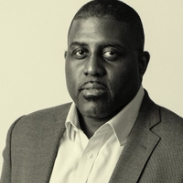 YouTube screengrab YouTube screengrabTHE FACTS A haul of nearly 600,000 subscribers places Fisayo Fosudo among the top bracket of YouTubers in Nigeria, and makes the 28-year-old arguably the most popular West African tech reviewer generating up to 5 million views a month across platforms including TikTok, Instagram, and Twitter. His coverage ranges from smartphones and TVs, to money lending apps, broadband subscription plans, and portable back-up battery packs. Fosudo runs his channel as a full-time operation with a small team. His business model is based on independent reviews running alongside promotional content paid for by brands. As an early mover in 2016 he’s seeking to maintain his advantage in Africa’s fast-growing creator economy as new entrants gun for a share of digital ad dollars. 💡When did you know there was real demand for tech reviews in the Nigerian market? I quickly realized this early on. Making reviews of devices was a passion project I felt I had to start, and it took investing my life’s savings, having almost zero earnings for around six months, and pitching to companies about what I did. I started making the kind of videos I wanted to watch and that brands could easily partner with. For one of my early reviews I was loaned a smartphone from Tecno, and that video quickly reached over 20,000 viewers at the time. 💡What does the perspective of a tech reviewer in Nigeria add to the global conversation around tech’s impact on society? Many global brands like Apple and Google don’t launch their smartphones in Nigeria at all, so we don’t get any early review units. We buy them at full price, out of pocket and sometimes at exorbitant amounts, to create informative content that the Nigerian audience can relate to. But companies like Transsion (who make Tecno, Infinix and iTel), Xiaomi, and Samsung prioritize this market with high-end and affordable smartphones. We can get review units from these brands quite early and shape opinions early on. 💡 Do you have a magic sauce that guarantees virality for your videos and what’s success for you? I don’t always have viral videos, but whenever we unbox new gadgets in the silent, ASMR-style, we almost always strike out at the local audience and get viral pretty quickly. Our last video on Meta’s AI Smart Glasses had over 27 million views on Instagram just a few days ago, and they cross the 1-million mark frequently. In terms of success, though, connecting with the audience matters more to me. If the video can make them feel something, learn something or feel a change, it’s a success. 💡 Have you considered moving to TikTok full time? YouTube remains the best platform to consume high-quality, long-form content. But we leverage other platforms — TikTok, Instagram, Twitter — to share short-form, bite-sized videos that appeal to audiences that love those platforms. YouTube helps us connect more with the audience, and there’s more context to a long-form 10-minute video than something that is rushed in under 1 minute or 90 seconds. 💡 Where would you take business partners visiting Lagos to enjoy authentic Nigerian food? I’d say Circa in Lekki mainly because of the ambiance but their jollof rice and plantain is really great. 💡 What Nigerian song is burning up your phone right now? Bloody Samaritan by Ayra Starr | 





